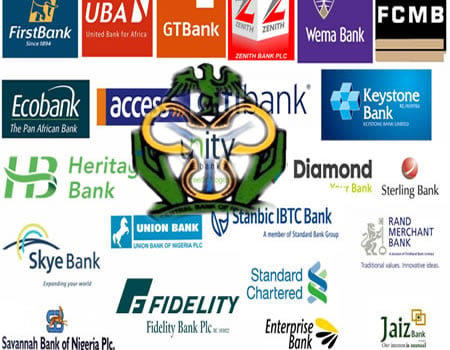A fresh report has shown that some Nigerian banks recorded growth in their Capital Adequacy Ratio (CAR) while others saw a slight decline in 2021.
The report by Proshare Research and Intelligence department obtained by Nigerian Tribune shows that United Bank for Africa (UBA), Access Bank and GTCO had the highest CAR at 24.90 per cent, 24.52 per cent, and 23.83 per cent in 2021, respectively.
Other banks that had CAR that outperformed the Systemically Important Banks (SIBs) requirements were Stanbic IBTC at 21.12 per cent, Zenith at 20.66 per cent, Fidelity at 20.11 per cent and First City Monument Bank (FCMB) at 16.24 per cent.
Meanwhile, the report on Banking System Stability showed that the banking system remains robust, stable and resilient. Available data show that all metrics of Financial System Stability including Capital Adequacy Ratio, non-performing loans ratio, liquidity ratio and returns on assets and returns on equity are in line with the prudential guidelines.
Capital adequacy, according to experts, is a situation where a financial institution’s capital level is enough to absorb its losses and asset shortfalls; having sufficient capital for current operations and future growth.
The CAR then measures the sufficiency, soundness and safety of the bank. It is an important metric of a bank’s risk exposure as its risk-weighted component incorporates credit risk, market risk, exchange rate risk and interest rate risk.
Proshare Research, in its report titled, ‘Tier 1 Reclassification, The Nigerian CAR Roadmap: Driving Capital from Strength to Strength,’ stated that “Albeit all the banks recorded CAR that was largely in compliance with the regulatory capital requirements for their respective category in 2021 except Unity bank with a negative CAR.”
It noted that the distribution of qualifying capital between Tier 1 and Tier 11 capital by the Nigerian banking industry has been outperforming the BCBS recommendation in terms of minimum CAR and the proportion of Tier 1 capital.
“In terms of minimum CAR, the trend of individual CAR of banks listed on the Nigerian Exchange Limited has been a mixed bag over the last five years. Among the banks designated as top tier banks, GTCO, UBA and Zenith top the chart of annual CAR within the last five years (2017-2021) with CAR of between 19 per cent and 27per cent while other top tier banks having CAR that oscillates between 15.5 per cent and 20.06 per cent within the period.
“Stanbic IBTC and Fidelity led the other banking category with annual CAR of between 16 per cent and 24.70 per cent while Unity bank recorded negative CAR as high as -201.59 per cent in 2019 and -86 per cent in 2021 due to the bank’s negative shareholders’ funds,” the report noted.
ALSO READ FROM NIGERIAN TRIBUNE
In terms of the composition of qualifying capital, it noted that the proportion of Tier 1 capital in the total qualifying capital of each bank-SIBs and others has also remained well above the BCBS recommendation for SIBs. On average in 2021, the proportion of Tier 1 capital in the total qualifying capital for the Nigerian banking industry averaged about 83 per cent, which was higher than the 75 per cent threshold for SIBs. On an individual basis, only ETI had Tier 1 capital that was lower than the 75 per cent threshold at 67 per cent.
Calibrating banks based on their systemic importance to the financial system and applying higher minimum capital adequacy ratios reduce the possibility of insolvency in the financial system and promote the stability and efficiency of the system. To achieve the required capital adequacy, the regulators essentially require increasing the qualifying capital, strengthening the bank’s balance sheet, or shrinking the risk assets on the bank’s books.
However, the minimum paid-up share capital to be maintained for national level banking license in Nigeria is N25 billion or any such amount that may be prescribed by the CBN, while for Regional Banking License, it is N10 billion and International Commercial Banking License is N50 billion.






